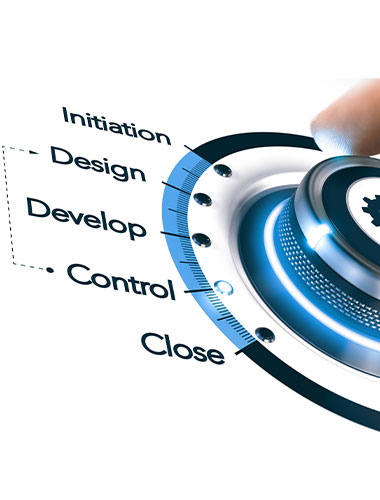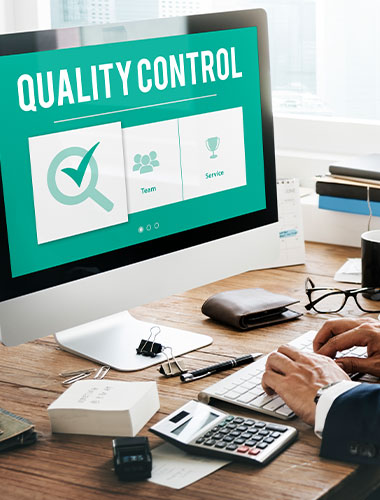PRODUCT LIFECYCLE
MANAGEMENT
SERVICES
Let BrokrXgames Handle
Your End-to-End
Product Lifecycle Management
BrokrXgames offers product lifecycle management (PLM) services to support small, mid-size, and enterprise-size business needs, connecting people, processes, and data vital to your production and manufacturing workflows.
Developers present a clear picture of the entire software project’s scope, defining and documenting the software requirements and feasibility details organized in a software requirement specification (SRS) document.
Architectural Design
Designers create a high-level design (HLD) or low-level design (LLD) document, incorporating a collection of SRS document details, improvement feedback, interface relationships, module information, and other essential details.
Building & Coding
Developers build the entire software system by writing code in a specific programming language, such as Python or JavaScript, implementing custom-coded modules, compilers, debuggers, interpreters, and other components.
Quality Assurance Testing
Software is deployed in a testing environment where the QA and testing teams identify bugs and other defects, communicate the issues with the developers, and apply a solution to the problem to ensure that the software is stable.
Installation & Deployment
Expert developers, engineers, and programmers make final edits and alterations before finally deploying the software to the production environment for distribution to the appropriate application marketplace.
Maintenance & Support
After the system has been deployed, IT support experts provide IT support & maintenance to ensure that the software system performs as per the specifications detailed in the software requirement specification (SRS) document.
BrokrXgames Custom PLM
Software Capabilities
BrokrXgames custom PLM software solutions deliver supply chain agility, business continuity, data governance, traceability, and the highest standard of quality and compliance, seamlessly integrated with existing ERP systems.
BILL OF MATERIALS (BOM) MANAGEMENT
Bill of materials (BOM) management provides full digital associativity and comprehensive out-of-the-box product structure management across supply chain, manufacturing, engineering, sales, and field service processes.
MANUFACTURING PROCESS MANAGEMENT
Provides comprehensive methodologies for specific manufacturing environments, ensuring seamless coordination between engineering & manufacturing workflows for a more connected and agile enterprise.

CHANGE & CONFIGURATION MANAGEMENT
Software developers fully define and control all necessary changes and configurations to the product, sharing those changes across the enterprise and delivering real-time views of the changes to cut down on production time.
RODUCT DATA & INFORMATION MANAGEMENT
Guarantees that every engineering model, drawing, design, and document is placed in a central repository, allowing organizations to connect, communicate, and share robust product data and information across distributed teams.

Product Variability Management
Enables manufacturers to diversify their products to meet customer needs, executing different bills of material (BOM) information, embedded software, configurations, and other information via a single data source.
Model-Based Systems Engineering
The MBSE-oriented approach enables early collaborative visualization and simulation, applying modeling, tools, and methodologies to improve engineering workflows, productivity, quality, and regulatory compliance.
Project & Design Collaboration
Connects cross-functional, geographically distributed project teams, enabling them to collaborate regardless of location, with a strong focus on design and manufacturing outsourcing and project management.
Quality Management
Provides automated failure mode and effects analysis (FMEA), accurate root cause analysis (RCA), and closed-loop corrective and preventive actions (CAPAs), ensuring that the product quality meets or exceeds industry standards.
Requirements & Test Management
The requirements & test management phase offers end-to-end traceability, enabling teams to specify, define, verify, and validate all aspects of the product while mitigating risk and ensuring customer satisfaction.
Service Process Management
Offers a product-centric approach that enables teams to manage all service information in a centralized source, incorporating automatically linked and updated parts lists, technical documentation, and CAD model illustrations.

Services
Contact Us
- Gate 8, 4th Floor Hamarain Centre PO Box 95426 Deira, Dubai UAE
- office@brokrxgames.com
- www.brokrxgames.com

